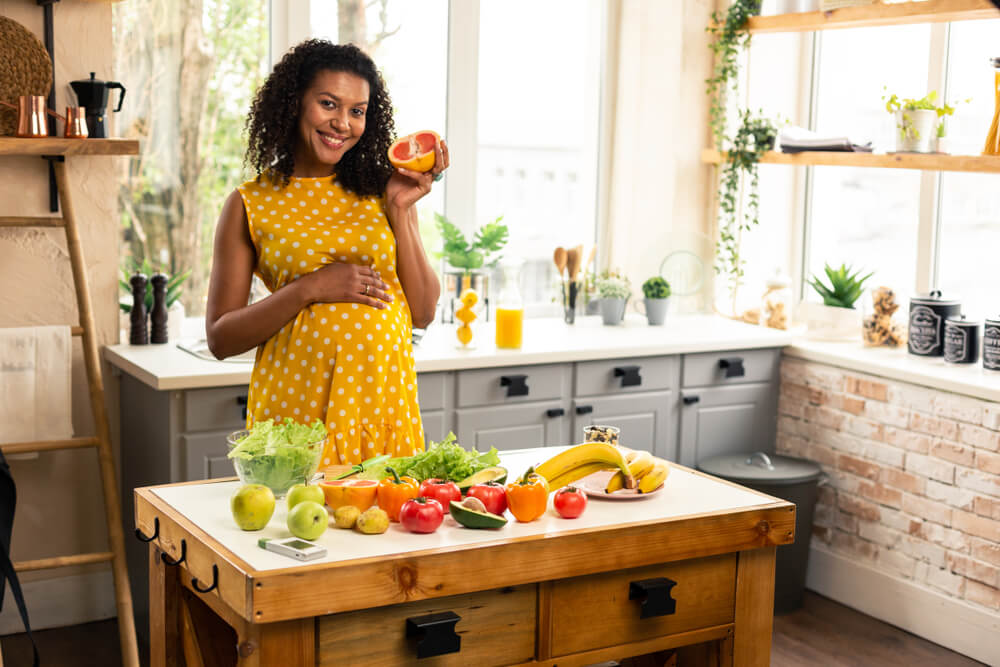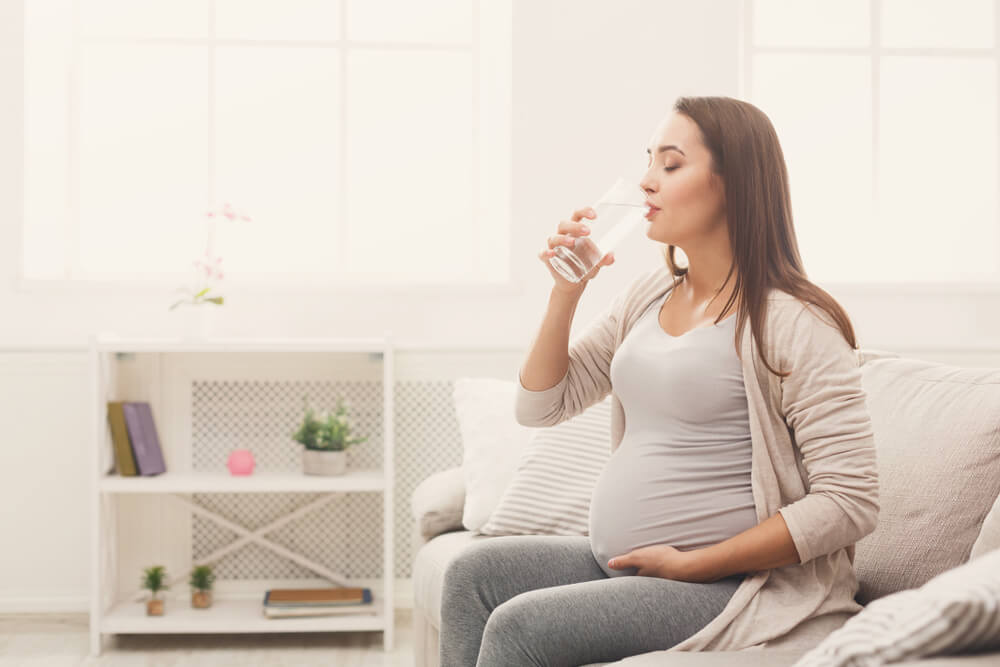It’s not a secret that the foods we eat can have a profound effect on our health and even our mood. And when it comes to pregnancy nutrition, more foods can affect both the mother’s and the baby’s health than most of us might realize. Which are the foods mothers-to-be should avoid while pregnant? How to approach prenatal nutrition in a way that will promote a healthy pregnancy? This article will cover all the necessary information you need to know.
At ACE OBGYN, our experts have always advocated for committing to healthy pregnancy nutrition. Every mother wants only the best for their baby. Because of that, they all opt for more fruit and veggies during pregnancy, add more salads and chickpeas to their meals, and cut out sugary snacks, switching to healthier options, such as almonds. And we welcome and encourage those changes.
Still, we’ve found that some mothers aren’t sure what foods are best to avoid during pregnancy. That said, this article’s here to help expecting mothers understand the basics of pregnancy nutrition and the key to a healthy pregnancy.
Prenatal Nutrition Tip 1: Avoid High-Mercury Seafood

While seafood is an excellent source of protein and omega-3 fatty acids, promoting brain and eye development in the baby, expecting mothers should be a bit careful with seafood. Why? Because some shellfish and fish can contain higher levels of mercury, that can be potentially harmful for the baby, it can potentially damage the developing nervous system of the unborn child.
Generally speaking, the older and larger the fish, the more mercury it’s likely to have. That said, the Food and Drug Administration encourages pregnant mothers to avoid the following types of fish:
- Marlin
- Tilefish
- Shark
- Orange roughy
- Swordfish
- King mackerel
- Bigeye tuna
What’s Safe?
As hinted above, the right type of seafood is rich in essential nutrients that can promote a healthy pregnancy. That said, opting for seafood that contains little mercury is a wise decision. The latest (2020-2025) Dietary Guidelines for Americans recommends no more than two servings (eight to 12 ounces) of seafood a week. As such, pregnant women are safe if they go with the following options:
- Anchovies
- Herring
- Cod
- Catfish
- Shrimp
- Trout
- Tilapia
- Shad
- Sardines
- Pacific oysters
- Pollock
- Salmon
On that end, remember to limit albacore tuna (white tuna) to around 6 ounces per week.
Prenatal Nutrition Tip 2: Contaminated or Undercooked Seafood Should Also Be Avoided
Contaminated and undercooked seafood might contain harmful viruses and bacteria. To avoid them, consider the following:
- Stay away from raw shellfish and fish. For the most part, avoid undercooked or raw foods like sashimi, raw oysters, ceviche, sushi, clams, or scallops.
- Cook seafood adequately. To be on the safe side, ensure that the fish you cook reaches an internal temperature of 145 F. In most cases, fish is ready when it can easily separate into flakes and reaches an opaque color throughout. Lobster, scallops, and shrimp should be cooked until they get a milky white color. Mussels, clams, and oysters should be cooked until their shells manage to open, and those that don’t should be discarded.
- Research local fish advisories. If you consume local water fish, make sure to understand local advisories, especially in cases when water pollution is a potential concern. If you are uncertain about the safety and quality of the fish you’ve already consumed, avoid eating any other fish for the remainder of the week.
- Stay away from uncooked and refrigerated seafood. Lox, smoked, jerky, kippered, and nova-style seafood options should all be avoided. You can have some if it’s an ingredient in a cooked dish, such as a casserole. Shelf-stable and canned fish are also okay to eat.
Pregnancy Nutrition Tip 3: Stay Away from Undercooked Meat, Eggs, and Poultry
Pregnant women are typically at an increased risk of bacterial food poisoning, meaning certain food reactions might be more severe than in non-pregnant females. Rarely, food poisoning may also affect the baby.
In order to limit and prevent foodborne issues altogether, please, consider the following tips:
- Before eating any poultry or meats, cook them fully. To avoid eating undercooked meat, using a meat thermometer can be an excellent idea.
- Stay away from refrigerated meat spreads and pates. Still, don’t forget that shelf-stable and canned versions are okay to consume.
- Luncheon meats and hot dogs should be cooked until steaming hot. Or it’s also highly recommended that you avoid them entirely as they can be sources of rare but harmful illnesses (listeria infection).
- Eggs should be cooked until the whites and yolks are firm. As with undercooked meat, you should also avoid undercooked eggs. Raw eggs can also be sources of harmful bacteria, so it’s best to stay away from foods that have partially cooked or raw eggs in them. Raw batter, eggnog, Caesar salad dressing, and hollandaise sauce are all best avoided.
Prenatal Nutrition Tip 4: Wash Your Vegetables and Fruits
Avoid harmful bacteria by washing all your veggies and fruits thoroughly. Also, avoid raw sprouts in general, like clover, radish, alfalfa, and mung bean, as they can contain disease-causing organisms. If you want to eat sprouts, just make sure to cook them thoroughly.
Pregnancy Nutrition Tip 5: Avoid Unpasteurized Foods
Low-fat dairy like mozzarella, cottage cheese, and skim milk can be great dietary options. However, anything that contains unpasteurized milk should be avoided as it can cause foodborne illnesses.
Soft cheeses like feta, brie, and blue cheese should be avoided unless the label states that they are made with pasteurized milk. Unpasteurized juice should also be avoided.
Prenatal Nutrition Tip 6: Limit Your Caffeine Intake

Healthcare providers typically recommend limiting caffeine to no more than 200 milligrams during pregnancy. To give you a better perspective, an eight-ounce cup of coffee will contain around 95 milligrams of caffeine. The same cup of tea will be roughly around 47 milligrams, while a twelve-ounce caffeinated cup of cola will have around 33 milligrams of caffeine.
That said, consult your doctor about whether you should drink herbal tea during pregnancy. The data on their effects is a bit unconcise, so it’s best to check with your provider if you are thinking about drinking them.
Pregnancy Nutrition Tip 7: Stay Away From Alcohol
The best thing you can do with alcohol during pregnancy is to avoid it altogether.
Consuming alcohol while pregnant can increase the risks associated with stillbirth and miscarriage. Furthermore, consuming alcohol while pregnant may also lead to fetal alcohol syndrome, which causes intellectual disabilities and facial deformities.
Stay Healthy, Keep Your Baby Safe
Developing and sticking to a healthy prenatal meal plan isn’t only beneficial for your baby. For the most part, the foods that providers and dieticians recommend are generally healthy and nutritious, meaning that you will give yourself and your baby excellent service if you prioritize healthy options even after delivery.
On that note, if you want to learn more about proper pregnancy nutrition, feel free to schedule an appointment with us.

